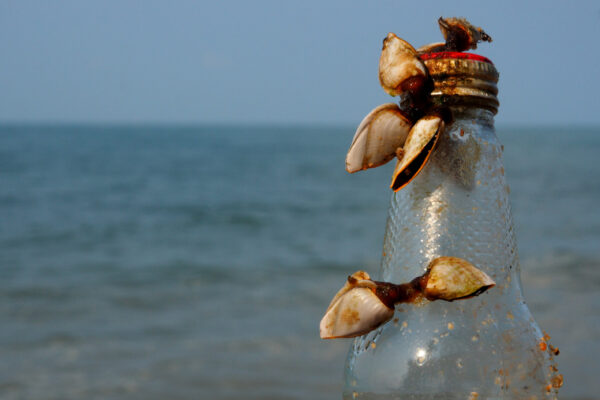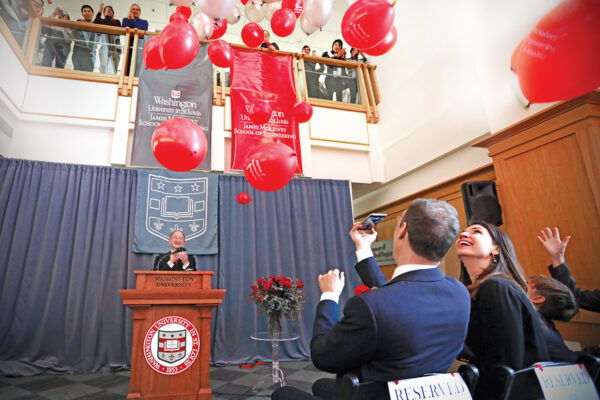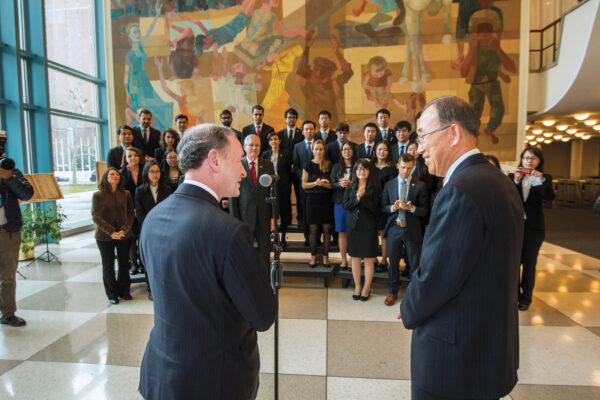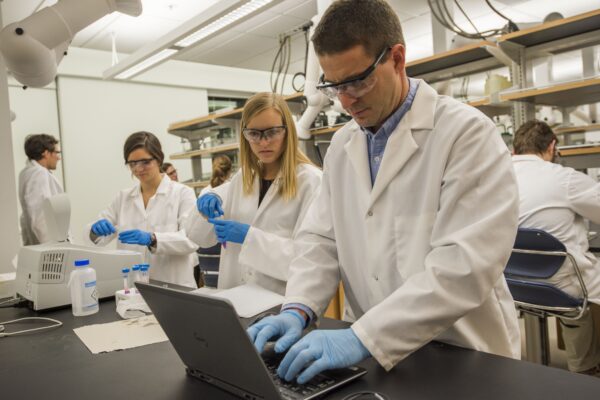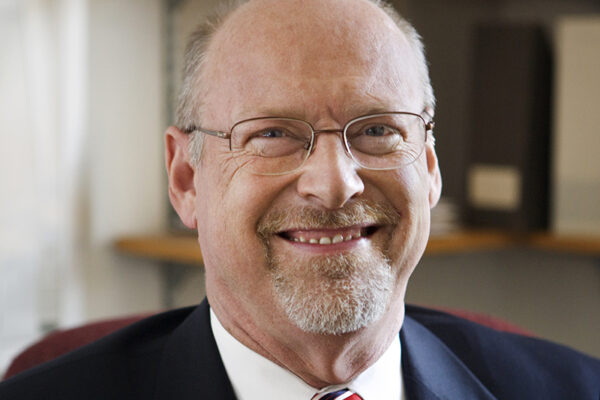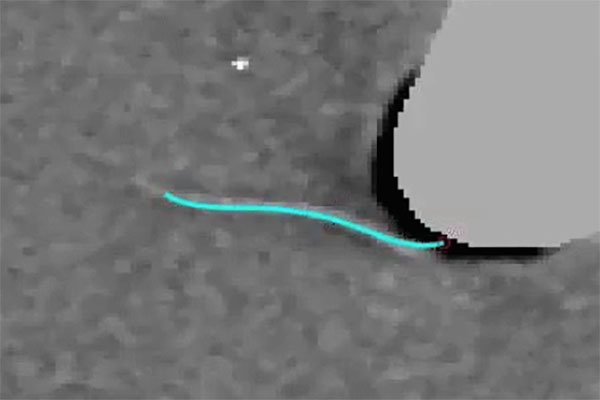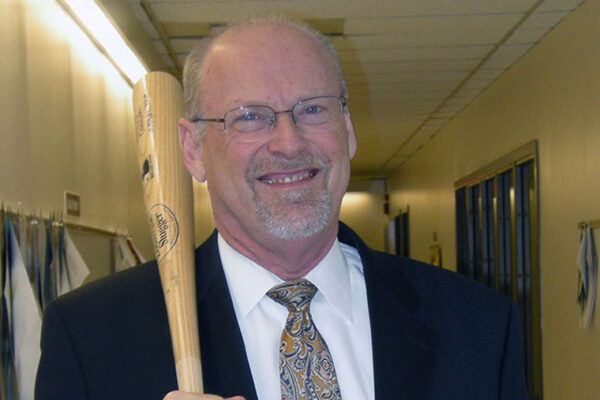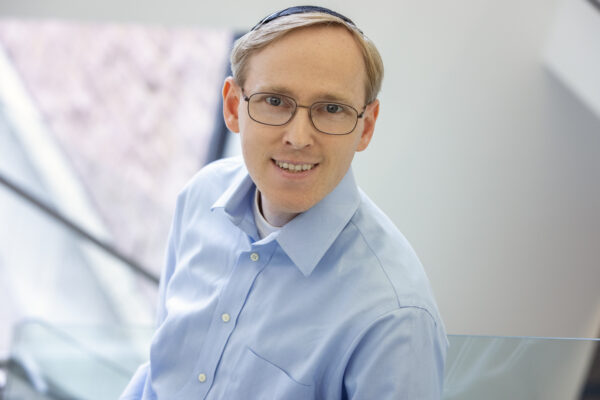Media advisory: Students compete to build best glider at Boeing Engineering Challenge
More than 230 students from the St. Louis region will launch their balsa wood gliders at the 11th annual Boeing Engineering Challenge at Washington University. The competition follows months of designing, building and testing at elementary, middle and high schools across the region, where Boeing engineers have volunteered as mentors.
The sticky science of underwater adhesives
Researchers at the McKelvey School of Engineering have received funding to engineer microbes that create an underwater adhesive based on, but stickier than, the natural adhesive made by mussels.
A new era of engineering
The School of Engineering & Applied Science is renamed the McKelvey School of Engineering in honor of trustee and distinguished alumnus Jim McKelvey Jr.
Going global
From the beginning of his tenure, Mark Wrighton set out to put Washington University and its students and faculty on the map.
McKelvey School of Engineering debuts undergraduate environmental engineering degree
Beginning in the fall of 2019, Washington University in St. Louis will welcome its first cohort of students who will graduate with a bachelor’s degree in environmental engineering. Unlike traditional environmental engineering programs with strong ties to civil engineering, this new degree will have a chemical engineering flavor.
Peters wins Klemin Award
David Peters, the McDonnell Douglas Professor of Engineering at the McKelvey School of Engineering, has been chosen to receive the Dr. Alexander Klemin Award from the Vertical Flight Society. It’s the highest honor the society gives an individual for notable achievement in advancing vertical flight aeronautics.
Making waves: Researchers shed light on how cilia work
An interdisciplinary team of researchers from the McKelvey School of Engineering and the School of Medicine have found the most efficient length for cilia, the tiny hair-like structures designed to sweep out the body’s fluids, cells and microbes to stay healthy.
Going deep: The ‘contagious energy’ of Opening Day
In celebration of Major League Baseball’s Opening Day, Washington University students and faculty look at the statistics, physics, business and cultural significance of America’s pastime.
The physics of baseball
David Peters, the McDonnell Douglas Professor of Engineering in the McKelvey School of Engineering at Washington University in St. Louis, has a body of work in applied aerodynamics and a host of academic honors, but he’s also a baseball fan. That’s why watching a baseball game takes on a whole new spin, aerodynamically speaking.
Vorobeychik receives competitive MURI award
Yevgeniy Vorobeychik, at the McKelvey School of Engineering, is part of a team that received a $6.25 million five-year grant under the U.S. Department of Defense’s highly competitive Multidisciplinary University Research Initiative Program (MURI) Award. The team will work to develop tools to understand and shape both online and on-the-ground networks that drive human decision-making.
View More Stories

